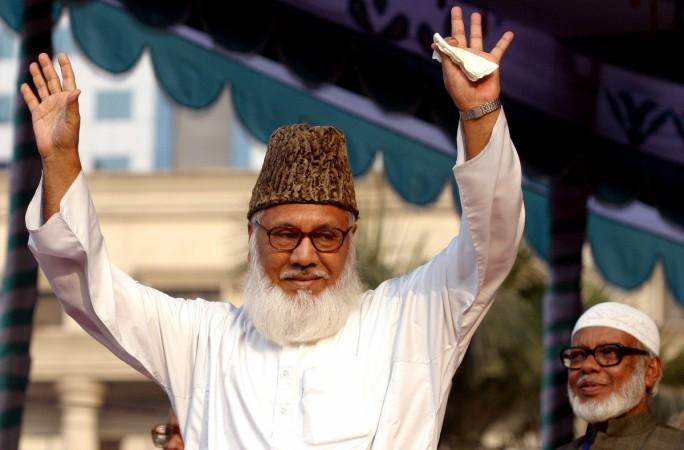
Motiur Rahman Nizami, a former chief if the Jamaat-e-Islami, was executed and buried in his ancestral home on Wednesday for war crimes during the 1971 Liberation War of Bangladesh. Nizami had reportedly refused to seek pardon from the Bangladeshi president.
Nizami, the fifth war criminal to be executed in the country, was convicted of genocide, rape and murders. He was hanged at Dhaka Central Jail at one minute past midnight on Wednesday.
"We have waited for this day for a long 45 years," war veteran Akram Hossain was quoted as saying by Al Jazeera. "Justice has finally been served."
His plea was rejected by the Supreme Court on Thursday, paving the way for his execution. After the final rejection by the apex court the only option was to seek a presidential pardon, which Nizami did not opt for.
The fundamentalist group, of which Nizami had been the head, called for a strike on Thursday to protest against the execution. Security in the capital was tightened — thousands of police and security personnel were deployed — in fear of violence as protesters who supported the execution and those against it took to the streets. Earlier protests against the execution of Islamist leaders have led to the death of 200 Jamat members and police in clashes.
Security was also increased in the Pabna district's Santhia upazila, where the Islamist leader's body was taken for burial.
The special tribunal set up for war crimes during the 1971 independence war of the country has convicted five opposition leaders, of which four were members of Jamaat-e-Islami, since 2013.
"Motiur Rahman Nizami not only co-operated with the Pakistani invading force in committing various crimes against humanity but also masterminded the formation of Al-Badr Bahini and was a leader of this Al-Badr Bahini," read his appeal verdict, according to India Today.
Legal experts affiliated to the International Criminal Court, the U.S. State Department and others were quoted as saying by Al Jazeera that Bangladesh's International Crimes Tribunal (BICT) had failed to "uphold the highest international standards required in such cases, in particular where there is the imposition of the death penalty."















